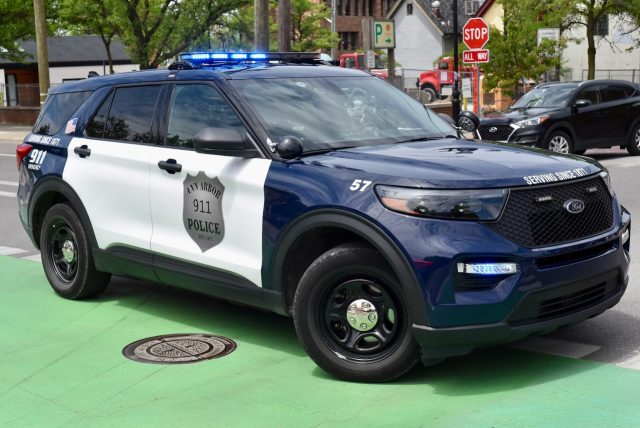[ad_1]
ANN ARBOR, MI — Ann Arbor has a new policy for how it will spend the city’s rebate money from a countywide property tax if voters renew the millage in the Nov. 5 election.
The over $3 million per year the city receives would be split three ways going forward, with 40% helping launch an unarmed crisis response program, 40% for mental health and other supportive services for Ann Arbor Housing Commission tenants and 20% for pedestrian and bicycle safety projects.
City Council voted unanimously to approve that new funding split Monday night, Oct. 7.
“A strong social safety net works hand in hand with unarmed crisis response to ensure both mental wellbeing and public safety,” said Council Member Cynthia Harrison, D-1st Ward, speaking in support of the new policy.

Council Member Cynthia Harrison, D-1st Ward, at the Ann Arbor City Council meeting Sept. 3, 2024. (Ryan Stanton | MLive.com)Ryan Stanton | The Ann Arbor News
It’s a revision to a policy council put in place in 2017 ahead of Ann Arbor and Washtenaw County voters approving a new mental health and public safety millage for the first time.
County officials are now asking voters to renew the 1-mill levy for the Sheriff’s Office and Community Mental Health for another eight years before it expires in 2025.
A quick look at the 20-plus ballot proposals in Washtenaw County this November
Mayor Christopher Taylor said he’s pleased council is again making a commitment to voters as to how the city intends to spend their money if the city is entrusted with it.
Because Ann Arbor and some other jurisdictions fund their own police departments rather than relying on the Sheriff’s Office, they get a partial rebate from the millage so taxpayers are not double paying for police services. Ann Arbor since 2017 has opted to put its rebate share toward affordable housing, climate action and pedestrian/bicycle safety.
But the city now has other dedicated millages for affordable housing and climate action, so city leaders decided Monday to change up the policy to fund other priorities.
It has been a stated city goal since 2021 to develop an unarmed crisis response program to have non-police professionals such as social workers handle certain mental health emergencies and other matters that are non-violent and non-criminal in nature, rather than sending armed police into those situations. The city has struggled to line up a contractor to launch such as program, but city officials say it’s still a priority.
Harrison said she understands the community’s frustration and disappointment that it hasn’t happened yet, which is why city officials are seeking to establish sustainable funding for it.
The other funding policy change to support services for Housing Commission tenants states that will include services related to mental health, physical health, finances, job skills, employment, daily living skills, crisis management, conflict resolution, youth programming, criminal legal system harm mitigation, addiction treatment and community building.

In the foreground, a six-story affordable housing development led by the Ann Arbor Housing Commission is underway along Fourth Avenue in Kerrytown. Beyond, Ann Arbor’s Braun Court commercial courtyard where a new seven-story condo development is proposed on June 17, 2024. (Ryan Stanton | MLive.com)Ryan Stanton | The Ann Arbor News
Council Member Ayesha Ghazi Edwin, D-3rd Ward, said she’s excited the policy funds unarmed crisis response while also following a housing-first approach to support those in need. If people in need of assistance are housed, it can help to reduce their interactions with police and reduce the prevalence of substance abuse and mental illness, she said.
“This shows the city’s support and dedication to ensuring our most vulnerable citizens receive the aid that they need to maintain housing and receive the necessary services to live equitably in our community,” agreed Avalon Housing Executive Director Aaron Cooper, who addressed council.
For the money still dedicated to pedestrian and bicycle safety, that can include street lighting, pedestrian-activated signals, filling sidewalk gaps, protected or buffered bicycle lanes, trails and other off-road active transportation connections.
Want more Ann Arbor-area news? Bookmark the local Ann Arbor news page or sign up for the free “3@3 Ann Arbor” daily newsletter.
[ad_2]
Source link










